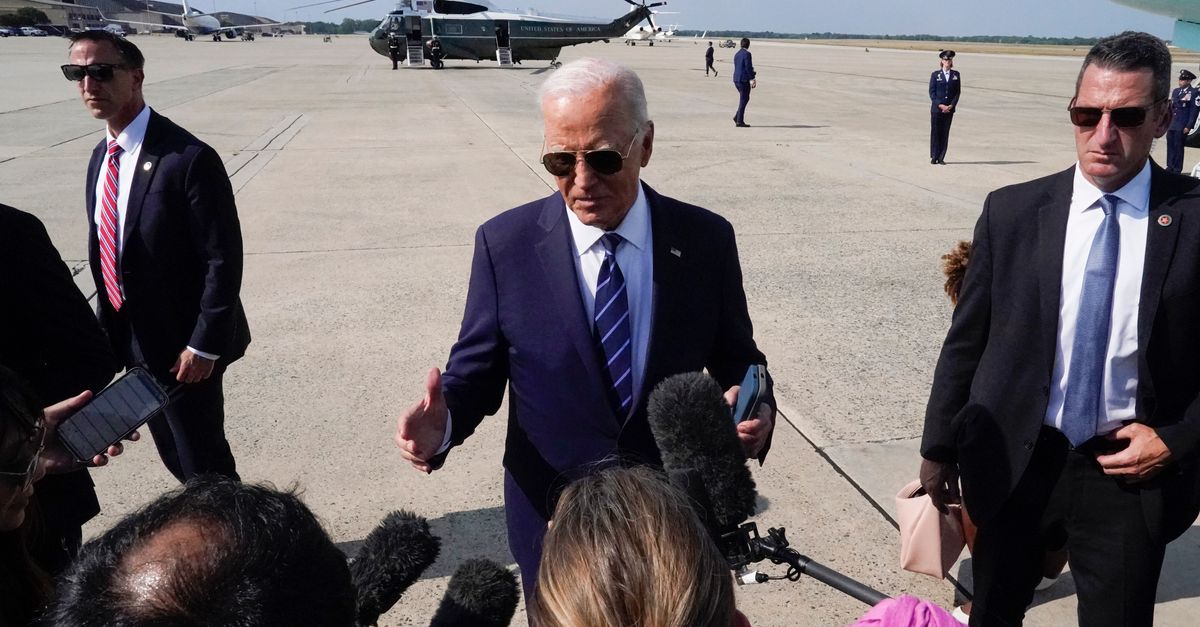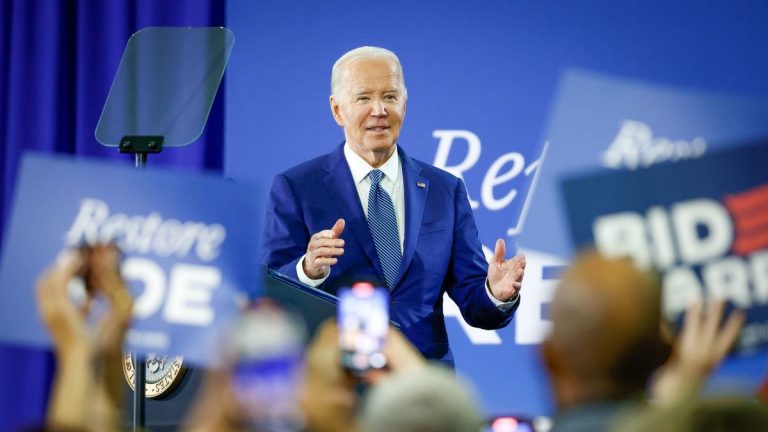Joe Biden’s support is dropping in important state polls.
President Joe Biden has expressed confidence in his chances of winning re-election, but recent surveys in key states suggest that the presidential race may be leaning towards former President Donald Trump. The shift is particularly noticeable in Pennsylvania, where Biden has consistently lagged behind Trump in polls following a lackluster performance in the June 27 debate.
Biden, however, remains optimistic, stating in an interview with NBC News’ Lester Holt that the race is essentially a toss-up, despite trailing in national polls. Data from democratic polling and analysis firm Split Ticket indicates that Biden’s position has worsened since the debate, contrary to his assertion that he led the last three national polls by four points.
While some Democrats had hoped for a significant shift in public opinion to urge Biden to step aside, the polling changes have been gradual, leaving him within the margin of error in crucial battleground states like Michigan, Wisconsin, and Pennsylvania. There have even been instances where Biden gained ground on Trump in certain swing states following the debate according to polling data conducted by Bloomberg News and Morning Consult.
Despite concerns from some Democratic lawmakers that Biden may not secure victory in November, calls for him to withdraw from the race have been limited, with less than 10% of Democrats on Capitol Hill advocating for his resignation. Senator Peter Welch of Vermont highlighted the growing political threat to Democrats as previously strongholds now lean towards the Republican party.
However, the recent assassination attempt on Trump has caused a pause in Biden’s campaign advertising and communications. Following the incident, Democratic lawmakers have raised concerns about a planned virtual roll call by the Democratic National Committee to formalize Biden’s nomination before the party’s convention next month.
Ohio’s requirement for parties to nominate their presidential candidate 90 days before the general election set a deadline for August 7, prompting the DNC to schedule the virtual roll call ahead of their convention in Chicago on the 19th. Although the Ohio legislature passed a law to extend this deadline, DNC officials maintained that the virtual roll call was essential to secure Biden’s presence on the Ohio ballot.
While different perspectives exist among Democrats regarding the necessity of the roll call, the DNC remains steadfast in its decision to proceed with the virtual nominations. The ongoing debates within the party reflect concerns about the current state of Biden’s campaign and the need for transparent decision-making processes.
Prior to the debate, Biden faced challenges in polls against Trump due in part to voters’ age-related concerns. His numbers in battleground states like Nevada, Georgia, and Arizona were notably low, highlighting vulnerabilities among Black and Latino voters. Trump’s lead in these states remained substantial, drawing attention to the importance of Michigan, Pennsylvania, and Wisconsin in the upcoming election.
While Biden questions the reliability of polling data, past elections have shown that polls can offer accurate insights into voter sentiments. Acknowledging the uncertainties associated with polling, Democrats supporting Biden’s withdrawal emphasize the need for a realistic assessment of the current political landscape.
As discussions around polling data dominate the narrative, Biden’s prospects within the Democratic Party appear to hinge on the interpretation of survey results. The internal debates within the party underscore the complexities of navigating an increasingly challenging electoral landscape.








